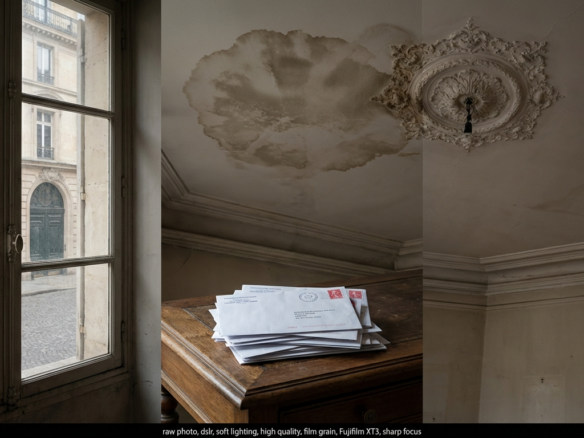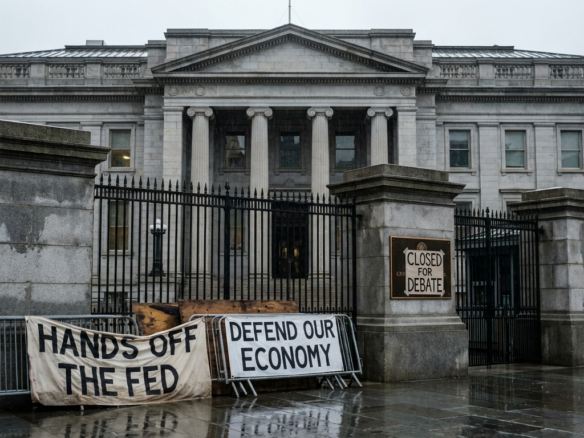France’s property tax landscape has undergone significant transformations in recent years, creating both challenges and opportunities for real estate investors. These changes, driven by government initiatives to address housing shortages and generate additional revenue, have fundamentally altered the investment equation for property owners across the country. Understanding these evolving tax structures is crucial for anyone looking to maintain profitable real estate portfolios in the French market.
Get 50% OFF!
Subscribe to our newsletter and enjoy a 50% discount on all listing packages, no strings attached!

France’s New Property Tax Rules Shake Up Market
The French government has implemented sweeping changes to property taxation that are reshaping the real estate investment landscape. The most notable adjustment involves the substantial increase in property tax rates across multiple regions, with some areas experiencing hikes of up to 25% over the past two years. These changes primarily target investment properties and second homes, creating a clear distinction between primary residences and investment assets.
Additionally, new regulations have introduced stricter assessment methods for property valuations, leading to more frequent and accurate appraisals. The government has also eliminated several tax exemptions that previously benefited real estate investors, including reduced rates for newly constructed rental properties. These modifications represent a fundamental shift in France’s approach to property taxation, moving away from investor-friendly policies toward revenue generation and market regulation.
How Rising Taxes Hit Real Estate Returns Hard
Investment returns have taken a significant hit as property taxes now consume a larger portion of rental income. Many investors report that their net yields have dropped by 1-2 percentage points, with some urban markets seeing even steeper declines. The impact is particularly severe for properties in high-value areas where tax assessments have increased dramatically, forcing investors to recalculate their investment strategies and expected returns.
Cash flow projections have become increasingly challenging as tax obligations continue to rise faster than rental income growth. Properties that once generated comfortable monthly profits now operate on much thinner margins, with some investors facing negative cash flow situations. This squeeze has prompted many to reassess their portfolios, leading to increased property sales in certain segments of the market and creating downward pressure on prices in tax-heavy regions.
Smart Strategies to Navigate Tax Changes
Successful investors are adapting by implementing strategic portfolio restructuring to minimize tax exposure while maintaining profitability. Key approaches include:
- Geographic diversification – Spreading investments across regions with more favorable tax rates
- Property type optimization – Focusing on asset classes that benefit from remaining exemptions
- Timing strategies – Coordinating purchases and sales to maximize tax advantages
- Legal structure optimization – Utilizing corporate entities where beneficial for tax efficiency
Professional tax planning has become essential, with many investors working closely with tax advisors to explore legal avenues for reducing their overall burden. Some are converting traditional rental properties into furnished accommodations, which may qualify for different tax treatments. Others are investigating opportunity zones and development projects that still offer preferential tax status, though these options require careful evaluation of risk versus reward.
Regional Variations Create Investment Hotspots
The implementation of new tax rules varies significantly across French regions, creating distinct investment opportunities and challenges. Areas like Brittany and certain parts of Normandy have maintained relatively modest tax increases, making them increasingly attractive to investors seeking better net returns. These regions now offer compelling value propositions compared to traditionally popular markets like Paris and the French Riviera.
Conversely, prime urban markets have experienced the steepest tax increases, with cities like Nice, Cannes, and central Paris seeing substantial jumps in property tax obligations. However, some investors view these markets as long-term holds, betting that strong rental demand and property appreciation will eventually offset higher tax costs. Rural and semi-rural areas are emerging as unexpected winners, offering stable tax environments and growing appeal among both domestic and international investors.
Future Outlook for French Property Investors
Market analysts predict continued evolution in France’s property tax framework, with potential additional changes expected over the next 2-3 years. The government’s focus on addressing housing affordability and generating revenue suggests that investment properties will likely face ongoing scrutiny and possible further tax increases. However, there may be opportunities for investors who align their strategies with government housing policy objectives.
Long-term success in the French property market will increasingly depend on adaptability and strategic planning rather than simply relying on property appreciation. Investors who can navigate the complex tax landscape while identifying undervalued opportunities in emerging regions are likely to outperform those who maintain traditional approaches. The market is experiencing a natural correction that may ultimately lead to more sustainable investment fundamentals and better opportunities for well-informed investors.
The French property tax changes represent a significant shift that demands careful attention from real estate investors. While these modifications have undoubtedly created challenges, they have also opened new opportunities for those willing to adapt their strategies and explore different markets. Success in this evolving landscape requires staying informed about regulatory changes, working with qualified tax professionals, and maintaining flexibility in investment approaches. Investors who embrace these changes and adjust their strategies accordingly are likely to find continued success in France’s dynamic real estate market.





Join The Discussion